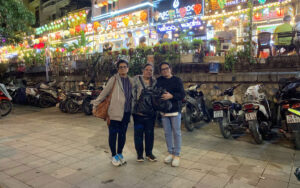Vietnam, known for its stunning landscapes, rich culture, and bustling cities, attracts travelers from all over the world. But before you set off on your journey to this captivating country, it’s necessary to understand, “What currency does Vietnam use?” The official currency, the Vietnamese Dong (VND), has unique values and uses that might be confusing for first-time visitors. Join us at Asia Legend Travel as we break it down for you in this guide!
What Currency Does Vietnam Use? Vietnamese Dong (VND)
When it comes to “What currency does Vietnam use?”, it’s important to know the following key points about the Vietnamese Dong, or Vietnam Dong (VND):
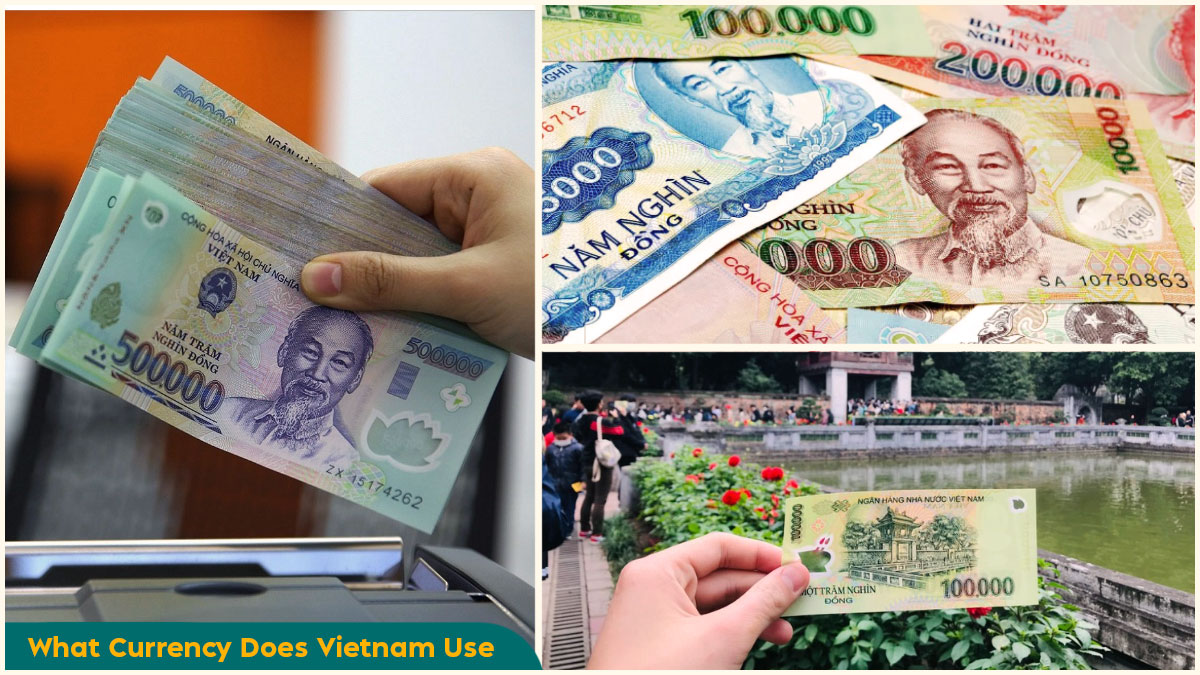
- History of the Đồng: The đồng (Vietnamese: đồng, pronounced /dɒŋ/) has been the official currency of Vietnam since May 3, 1978, and is issued by the State Bank of Vietnam.
- Abbreviation and Symbol: The Vietnamese Dong is abbreviated as VND, and its symbol is ₫ or informally đ in Vietnamese; the currency code is VND.
- Current Value and Exchange Rates: (according to Techcombank’s rates as of August 15, 2024)
- GBP 1 = VND 32,708
- CHF 1 = VND 29,344
- EUR 1 = VND 28,315
- USD 1 = VND 25,306
- SGD 1 = VND 19,392
- CAD 1 = VND 18,640
- AUD 1 = VND 16,958
- THB 1 = VND 747
- JPY 1 = VND 176
>> Explore: All you need to know about Vietnamese Currency!!
Vietnamese Currency Denominations
The next important aspect of understanding “What currency does Vietnam use?” is the denominations of the Vietnamese currency. While Vietnam previously used both banknotes and coins, coins were in circulation only from December 2003 to April 2011 before being withdrawn. Presently, only banknotes are used in Vietnam. Here are the denominations that are currently circulating.
VND 500,000
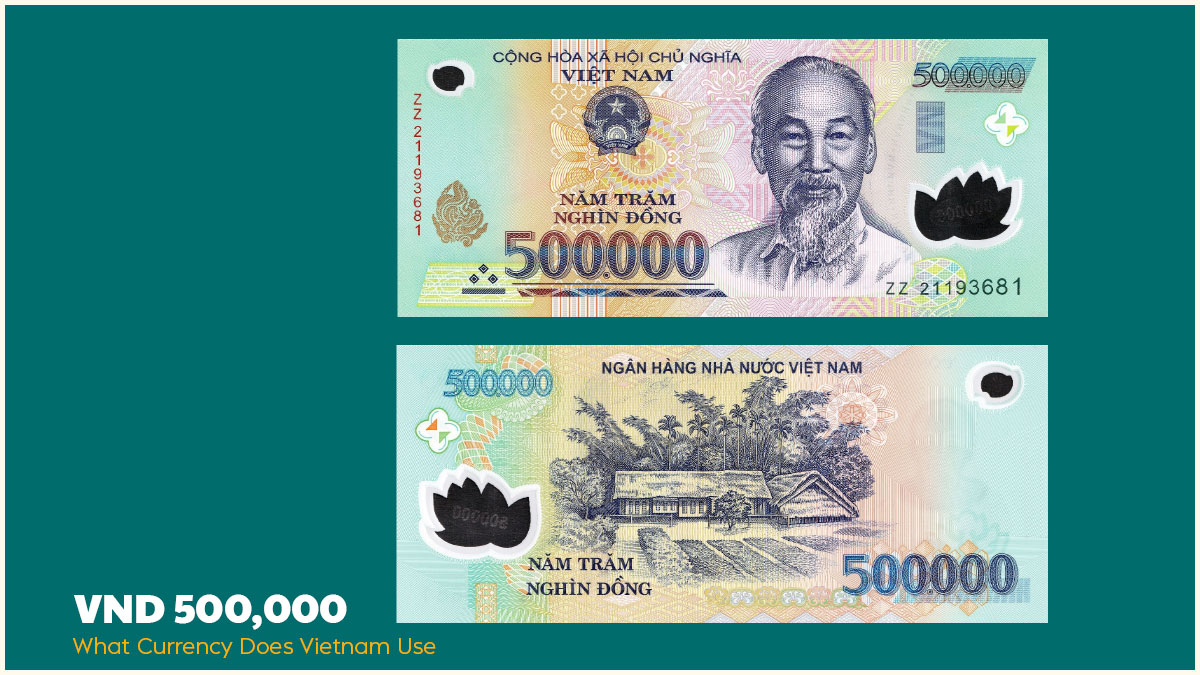
- Issued on: 17/12/2003
- Dimensions: 152mm x 65mm.
- Material: Polymer.
- Primary color: blue and bluish purple.
- Back design: Uncle Ho’s house in Kim Lien
VND 200,000
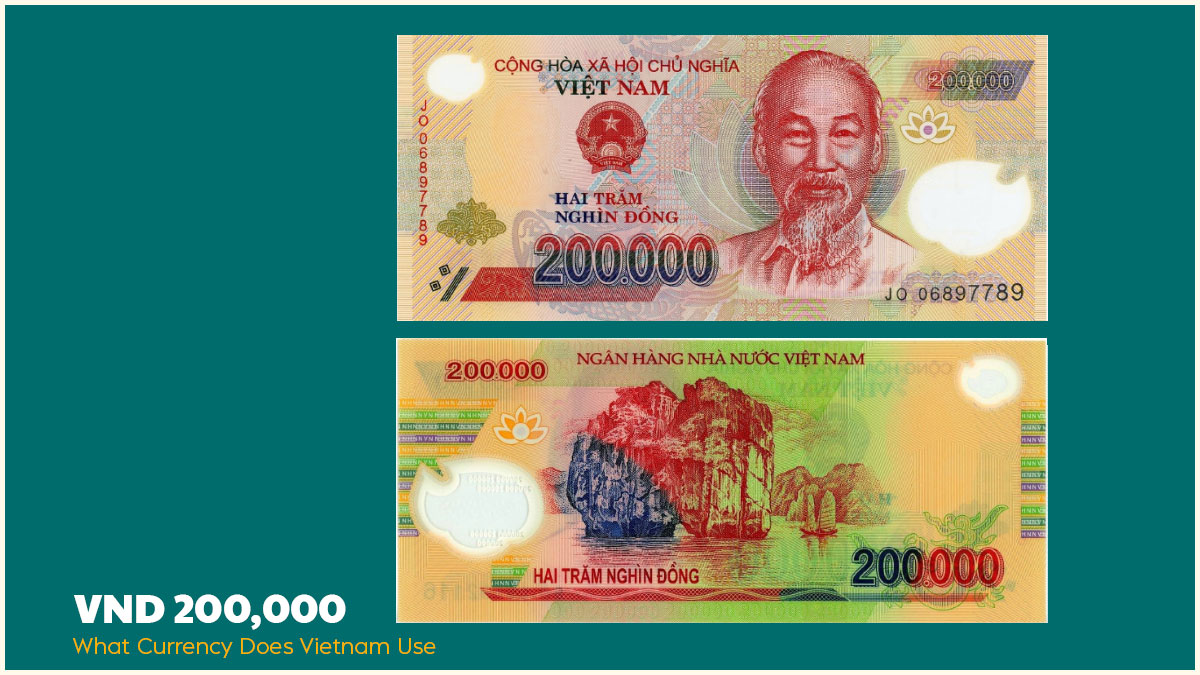
- Issued on: 30/8/2006
- Dimensions: 148mm x 65mm.
- Material: Polymer
- Primary color: brownish red
- Back design: Ha Long Bay
VND 100,000
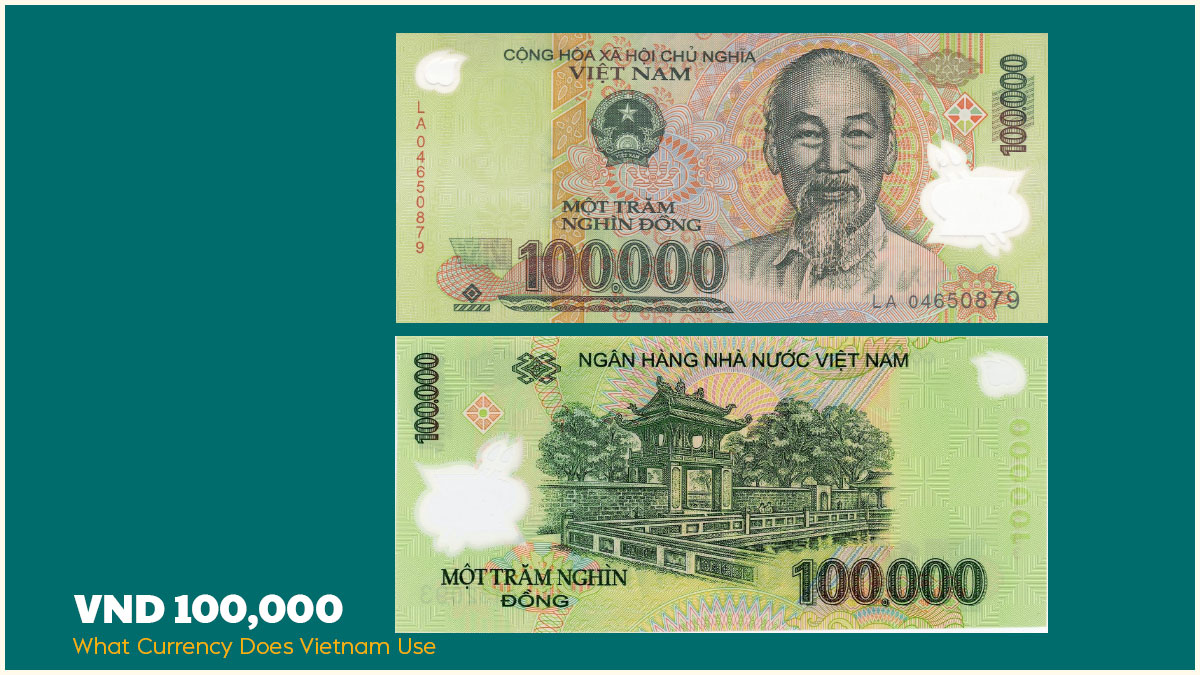
- Issued on: September 1, 2004
- Dimensions: 144mm x 65mm
- Material: Polymer, known for its high durability and environmental friendliness, featuring special security elements like a transparent window with latent or embossed images.
- Primary color: Dark green
- Back design: Temple of Literature
VND 50,000
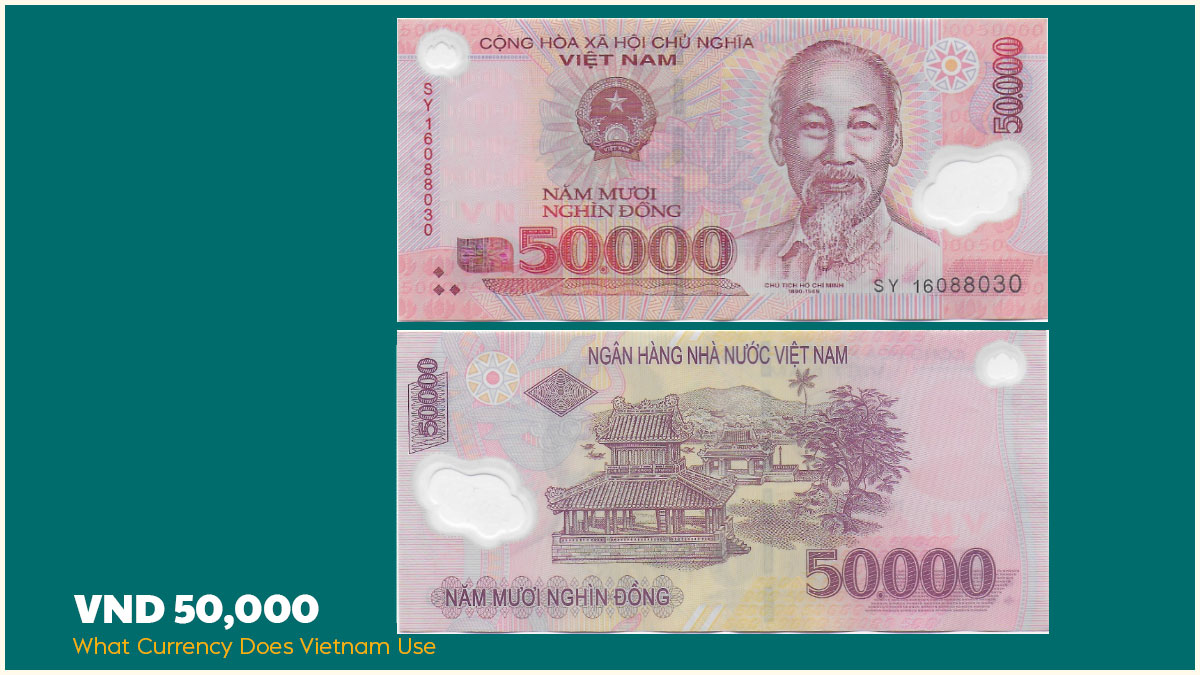
- Issued on: 17/12/2003
- Dimensions: 140mm x 65mm.
- Material: Polymer.
- Primary color: red and purplish brown.
- Back design: Phu Van Lau Pavilion and the Luong Dinh Welcome Pavilion, located on the banks of the Perfume River in Hue, Vietnam.
VND 20,000
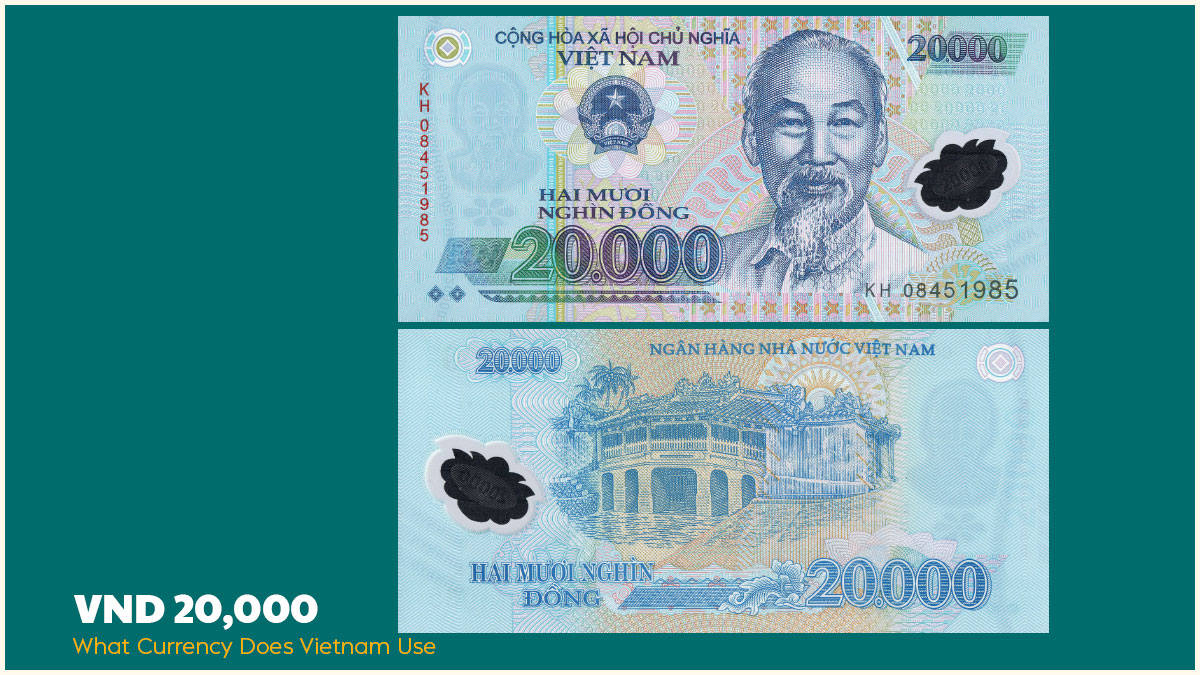
- Issued on: 17/5/2006
- Dimensions: 136mm x 65mm.
- Material: Polymer.
- Primary color: dark blue.
- Back design: Japanese Covered Bridge (Hoi An)
VND 10,000
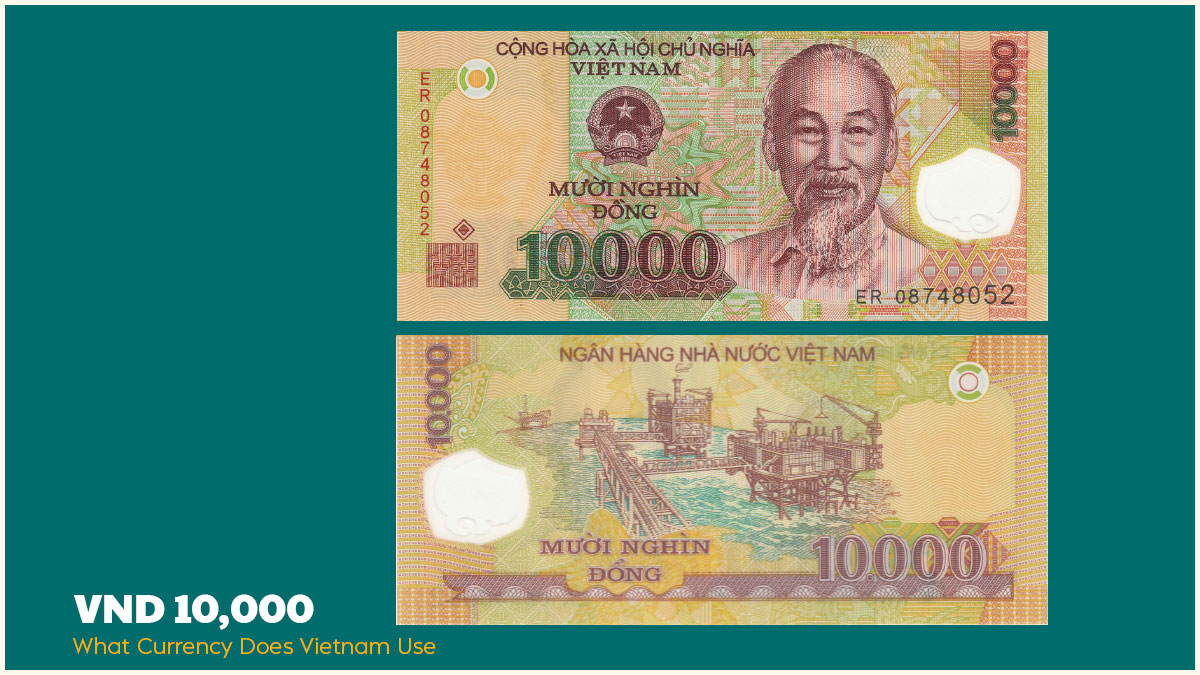
- Issued on: 30/8/2006
- Dimensions: 132mm x 60mm.
- Material: Polymer.
- Primary color: dark brown on a greenish yellow background.
- Back design: Bach Ho Oil Field
VND 5,000
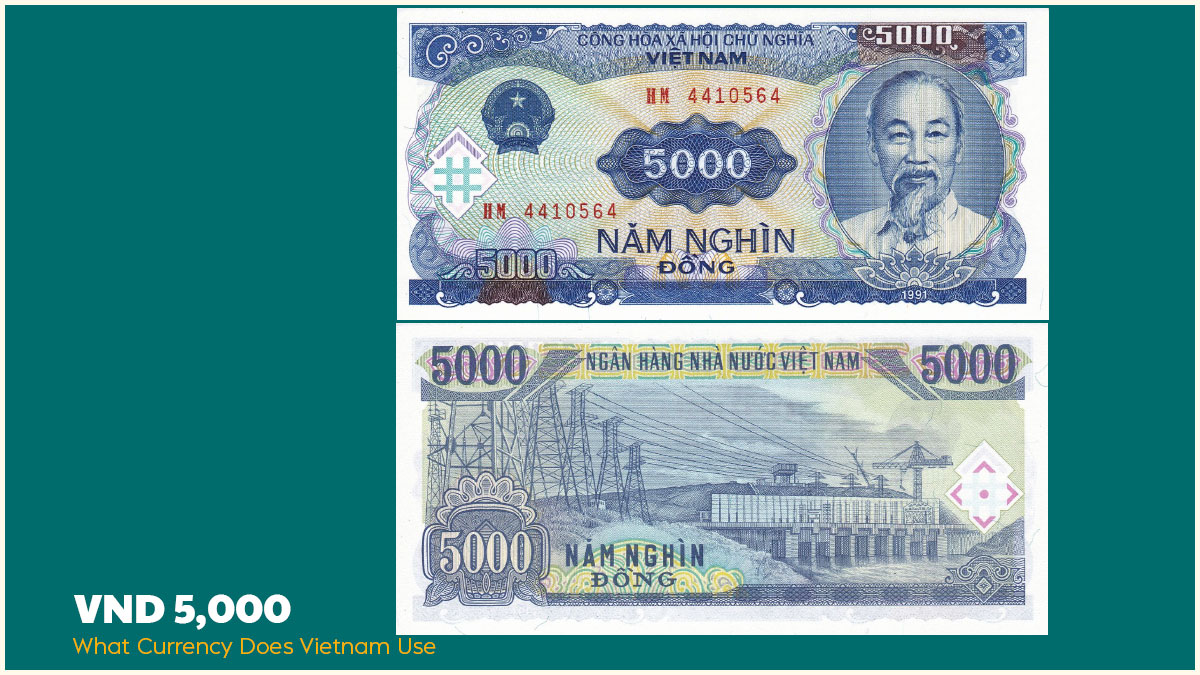
- Issued on: 15/01/1993
- Dimensions: 134mm x 64mm.
- Material: Cotton paper.
- Primary color: dark blue.
- Back design: Tri An Hydropower Plant
VND 2,000
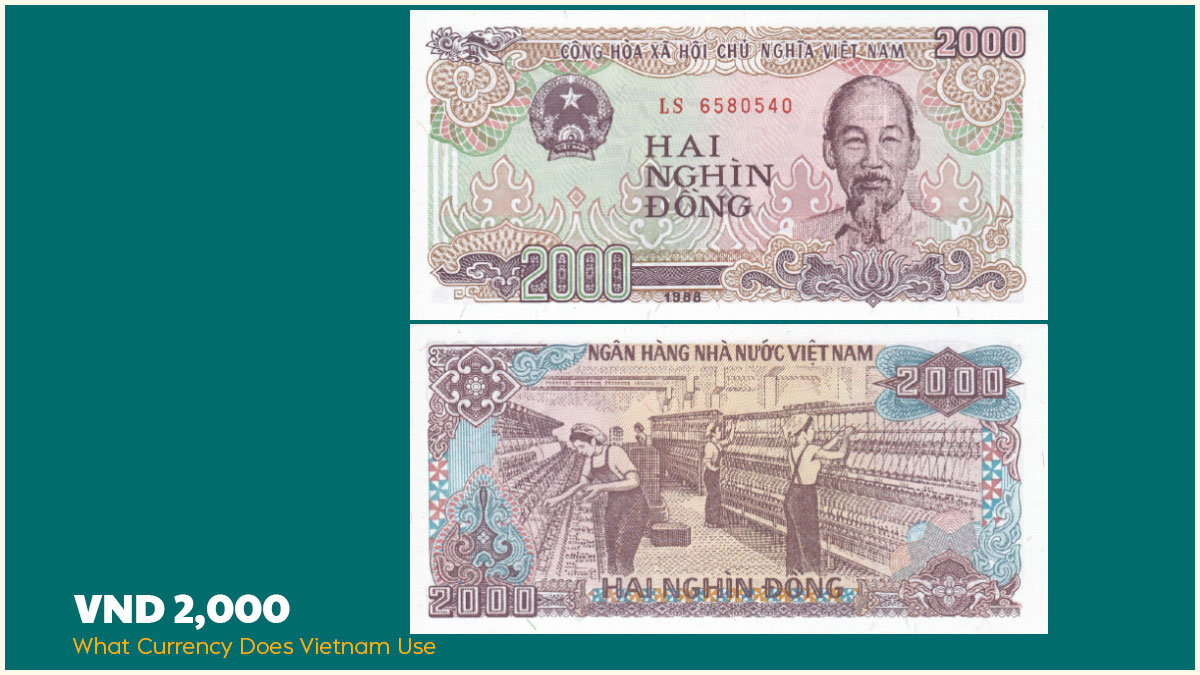
- Issued on: 20/10/1989
- Dimensions: 134mm x 64mm.
- Material: Cotton paper.
- Primary color: dark brown.
- Back design: Nam Dinh Fibers Factory
VND 1,000
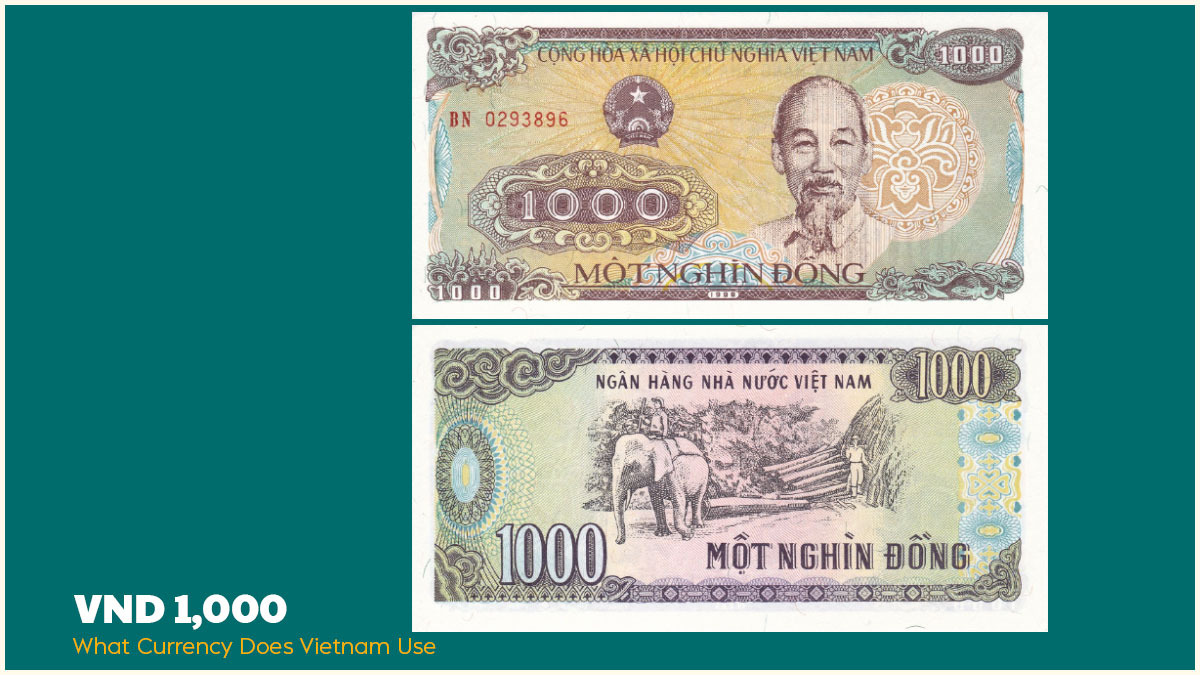
- Issued on: 20/10/1989
- Dimensions: 134mm x 65mm.
- Material: Cotton paper.
- Primary color: light brown and light yellow.
- Back design: Wood exploiting site in the central highland of Vietnam
VND 500
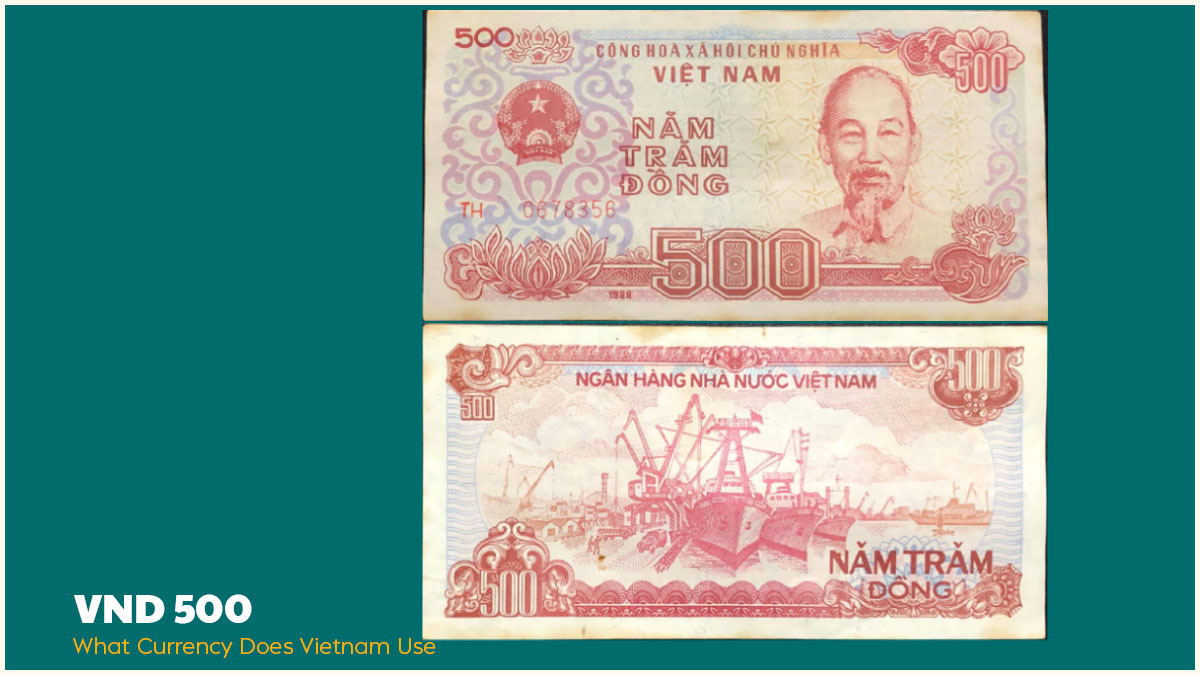
- Issued on: 15/8/1989
- Dimensions: 130mm x 65mm.
- Material: Cotton paper.
- Primary color: Lotus red.
- Back design: Hai Phong Port
- Note: The 500 dong note is rarely seen in circulation these days!
Interesting Facts about Vietnamese Banknotes
So, what currency does Vietnam use now? The Vietnamese Dong, with the denominations mentioned above. Interested in some fascinating facts about Vietnamese banknotes? Check out the section below.
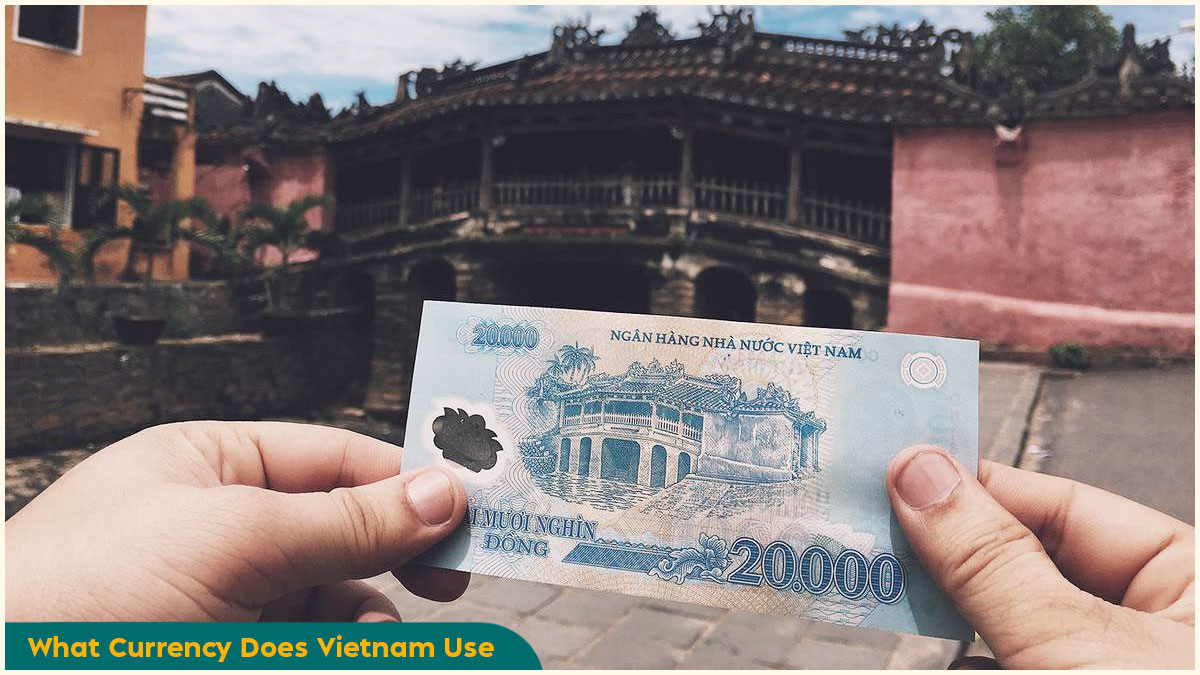
- The landscapes depicted on the back of Vietnamese paper banknotes and the VND 10,000 note are inspired by significant national achievements and improvements notable around the years they were issued.
- Meanwhile, the landscapes featured on the back of VND 20,000 to 500,000 notes are popular tourist attractions in Vietnam. You can use these images to plan your Vietnam itinerary.
- For Vietnamese polymer banknotes with denominations ranging from 10,000 to 500,000, the first two digits of the serial number indicate the last two digits of the year of issue. For example, if the first two numbers are 24, it means the note was introduced in 2024.
Credit Cards and Digital Payments
What type of currency does Vietnam use? Although cash is still widely used, credit cards and digital payments are also commonly accepted throughout Vietnam. Digital payment methods, in particular, are convenient and popular thanks to the country’s fast and reliable internet access.
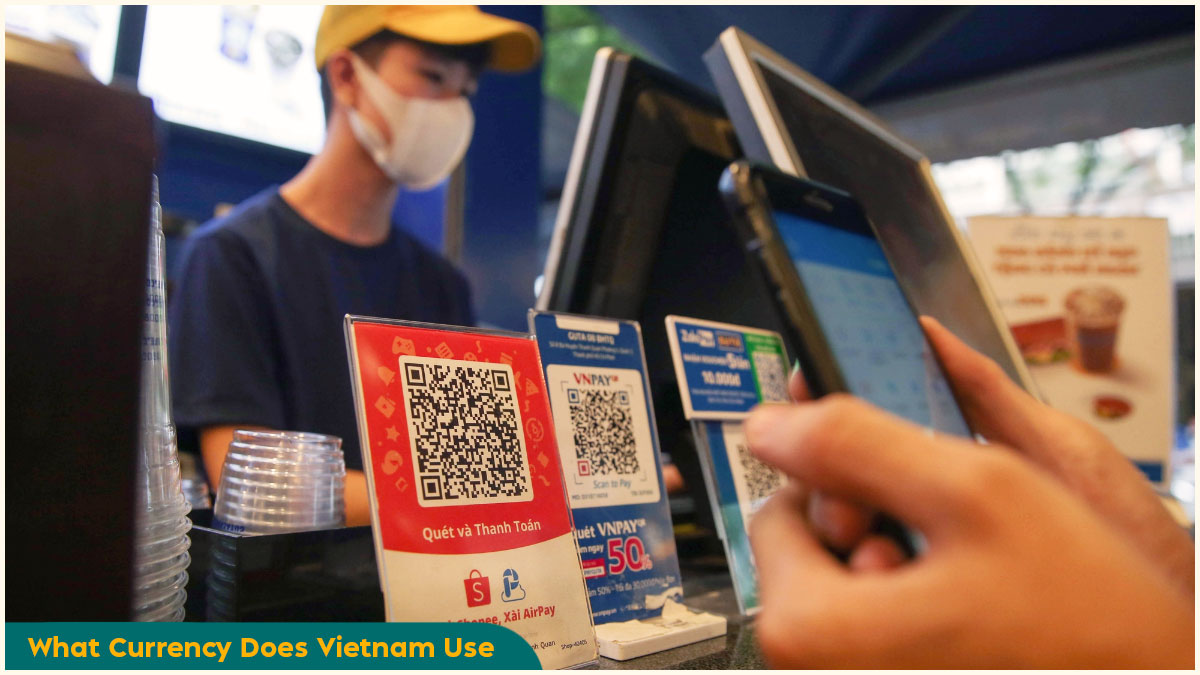
- Credit Card Usage: Credit cards are commonly accepted in hotels, restaurants, shopping malls, supermarkets, and large stores.
- Mobile Payments: Mobile payment apps are particularly popular in Vietnam. You can use these methods almost everywhere, including local markets, stalls, and even with street vendors. Some popular e-wallets in Vietnam include Momo, Vnpay, Zalopay, ShopeePay, and apps from Vietnamese banks.
Practical Tips for Handling VND
Now that you know “what currency does Vietnam use,” here are some practical tips for handling money in Vietnam.
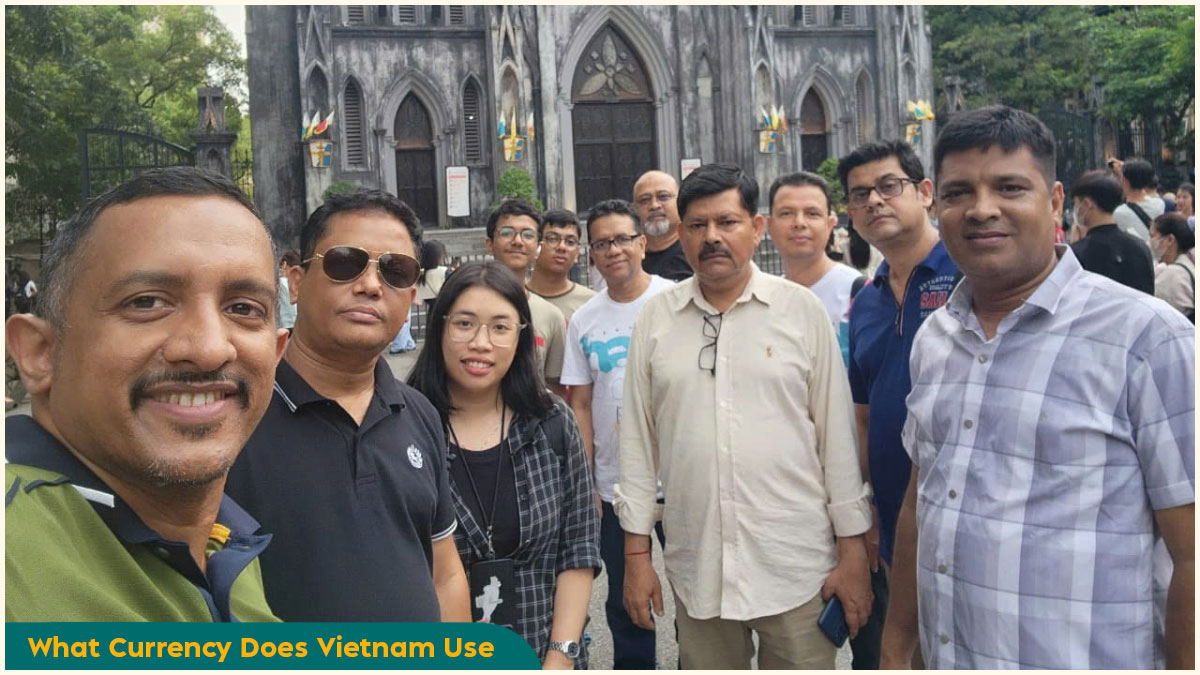
- Currency Exchange Locations: You can exchange currency at airports, banks, and gold/jewelry shops.
- Using ATMs: You can find ATM locations on the websites of Vietnamese banks. Sometimes, ATMs may run out of cash, so it’s a good idea to withdraw as much money as you need when you find a working one.
- Exchange Rates: Exchange rates fluctuate daily, and keep in mind, there are no exchange fees.
- Cash Transactions: It’s important for travelers to carry cash, especially in rural or mountainous areas where card payments might not be accepted and internet access is too weak for online payments.
- Small Denominations: It’s recommended to exchange for smaller denominations (VND 1,000 to 100,000 notes) for convenience when shopping at markets and with street vendors. Use larger denominations for tickets to tourist attractions.
- Recognizing Counterfeit Notes: While counterfeit currency is rare in Vietnam, it’s still possible to encounter it, especially with the VND 500,000 note, which is the most commonly counterfeited. There are a few simple ways to identify fake notes, such as checking the material or feeling for the embossed elements of “CỘNG HÒA XÃ HỘI CHỦ NGHĨA” on the front. However, these methods can be more challenging with older notes.
- Budgeting: Prices vary across different regions in Vietnam. For example, the cost in big cities like Hanoi is higher than in other areas. It’s helpful to have a local friend, but if not, do some research beforehand. Alternatively, choose shops that have many customers inside.
- Tipping and Bargaining: Tipping is not necessary in Vietnam, but it is appreciated if you choose to do so. When shopping, bargaining is generally expected, except in stores where prices are clearly marked.
Understanding “what currency does Vietnam use” is crucial for a hassle-free trip. Make sure to exchange your money wisely, stay alert to potential scams, and get comfortable with the local bargaining culture. Ready to explore the beautiful country of Vietnam? Start planning your Vietnam 14 day tour today!


